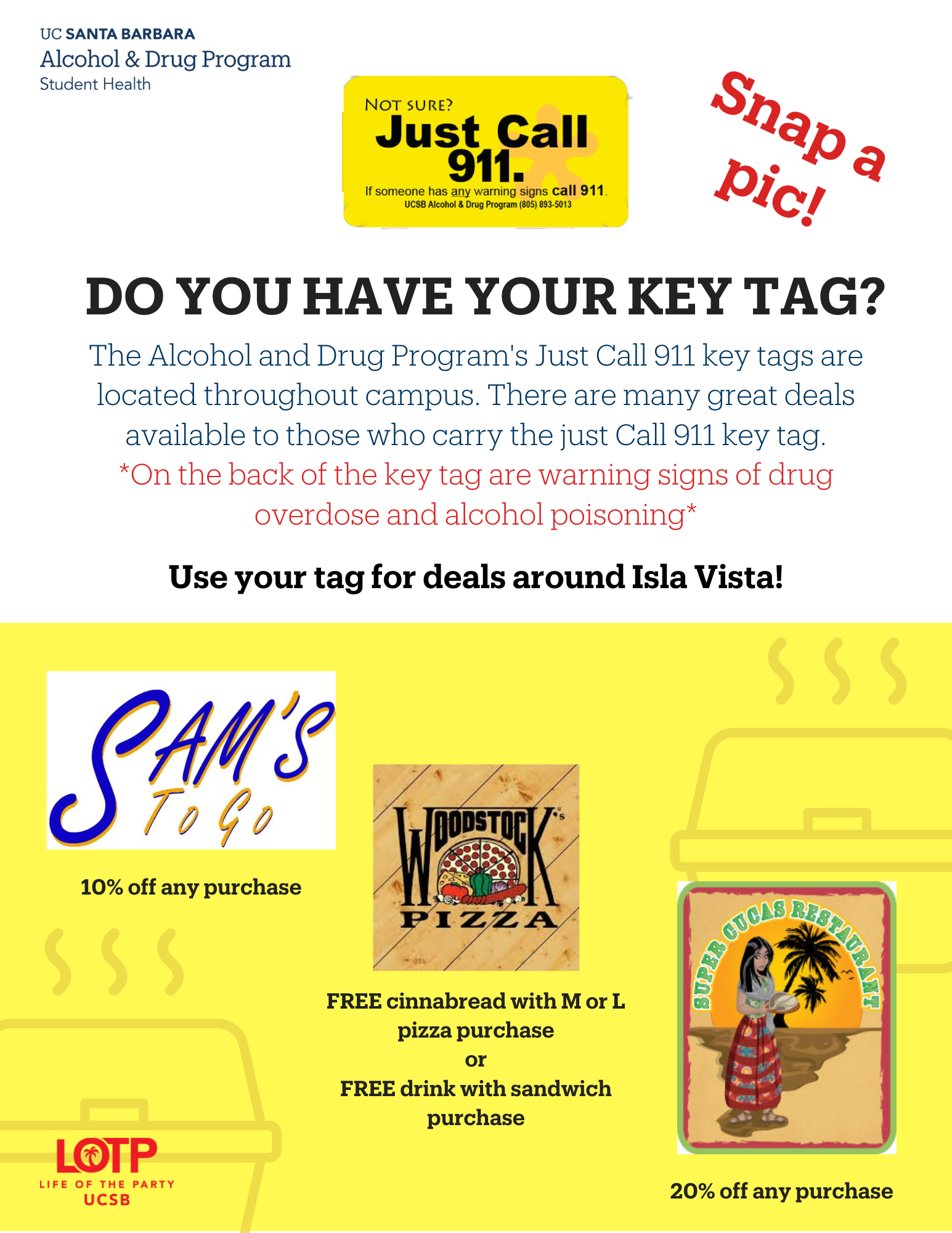STEP 1
Need Help
Time is essential during medical emergencies! Dialing 911 is still one of the most responsive methods for medical emergencies. However everyone may not be comfortable calling 911. While we can’t know what is going to happen in all situations, it is essential to contact emergency responders for medical assistance immediately! Our purpose is to educate and provide the skills needed to keep you and your fellow community members safe and alive. Additionally, you are protected by the “California Good Samaritan Law” and the UCSB “Responsible Action Protocol” in the Student Code of Conduct.
STEP 2
Know Possible
Warning Signs
For: Alcohol or Drug Overdose Situations
Won't wake up
Abnormal: temperature, breathing, skin tone, pulse
Vomiting
Extreme confusion
*See full JC911 Flipchart PDF below
STEP 3
Prepare for
Help To Arrive
Prepare for Help to arrive; Someone must stay with the student in distress until responders arrive, End the party, Turn off music, Turn on lights, clear the residence, Check the scene/clean up if needed.
STEP 4
MAKING THE CALL
Learn more below!
You’ve done the right thing by calling 911.
Any information that you have will help the emergency dispatcher, such as:
- Your location, more specifically, the address.
- The amount of alcohol/substance the person has ingested.
- The kind of alcohol/substance the person has ingested.
- How long the person has been drinking/using.
- When you first noticed warning signs.
- Any pre-existing conditions (diabetes, etc.).
Follow any instructions given to you by the emergency dispatcher.
You’ve done the right thing by calling 9-1-1. Do not leave the person alone. There are a few things you can do while you wait for the ambulance to arrive. Don’t be afraid to ask friends for help or support.
- Stay calm and stay with the person, especially if they are vomiting.
- Keep the person comfortable.
- If you lay someone down who is vomiting, make sure they are lying on their side to prevent choking.
- If the person’s temperature is abnormal, try to maintain a normal body temperature until help arrives (use blankets, wet washcloths, etc.)
- If the person keeps falling asleep, wake them often to make sure they are not unconscious and check their breathing.
- Do NOT make them throw up. The person’s gag reflex is impaired and they can choke on their own vomit or accidentally inhale vomit into their lungs. This can cause permanent lung injury or death.
- Do NOT force the person to drink coffee, water, or other beverages. Drinking other beverages will not prevent the absorption of alcohol into the blood-stream and it will not help.
- Do NOT laugh, ridicule, provoke, anger or threaten the person.
- Do NOT force feed them bread or other food. Alcohol depresses the nerves that control the gag reflex. Someone who is drunk will have a higher likelihood of choking on food. Alcohol is already in the person’s system so food will not help.
- Do NOT give the person a cold shower. The shock may cause the person to pass out, and getting the person in and out of a shower increases the chance of them falling down.
- Do NOT make the person walk, run or exercise. Alcohol has already been absorbed into their system, and forcing them to exercise will not help.
- Do NOT let the person sleep it off.
- Do NOT give the person salty water, milk or other drugs. This will not balance them out and can cause other problems.
- Do NOT slap the person too hard in attempts to wake them up. Slapping them harder will not help.
- Do NOT waste time trying to induce vomiting or walk them outside.
- Do NOT put anything in anyone’s mouth if they are having a seizure.
- Do NOT force the person to eat food or drink water.
- Do NOT put the person in the shower. The water temperature can send them into shock and it can be dangerous to get them in and out of the shower.
JC911 Flipchart
Just Call 911 (PDF Format!)
